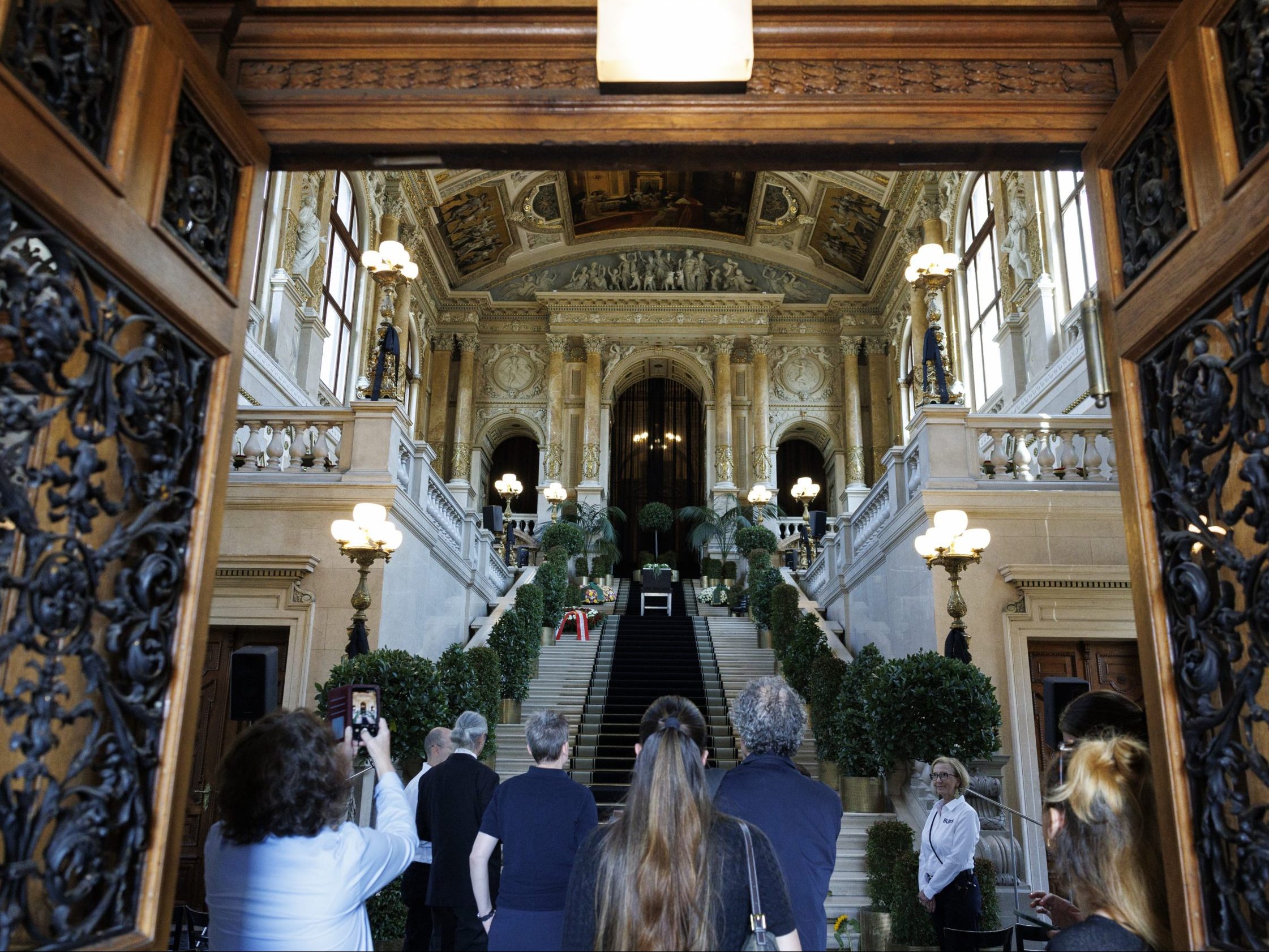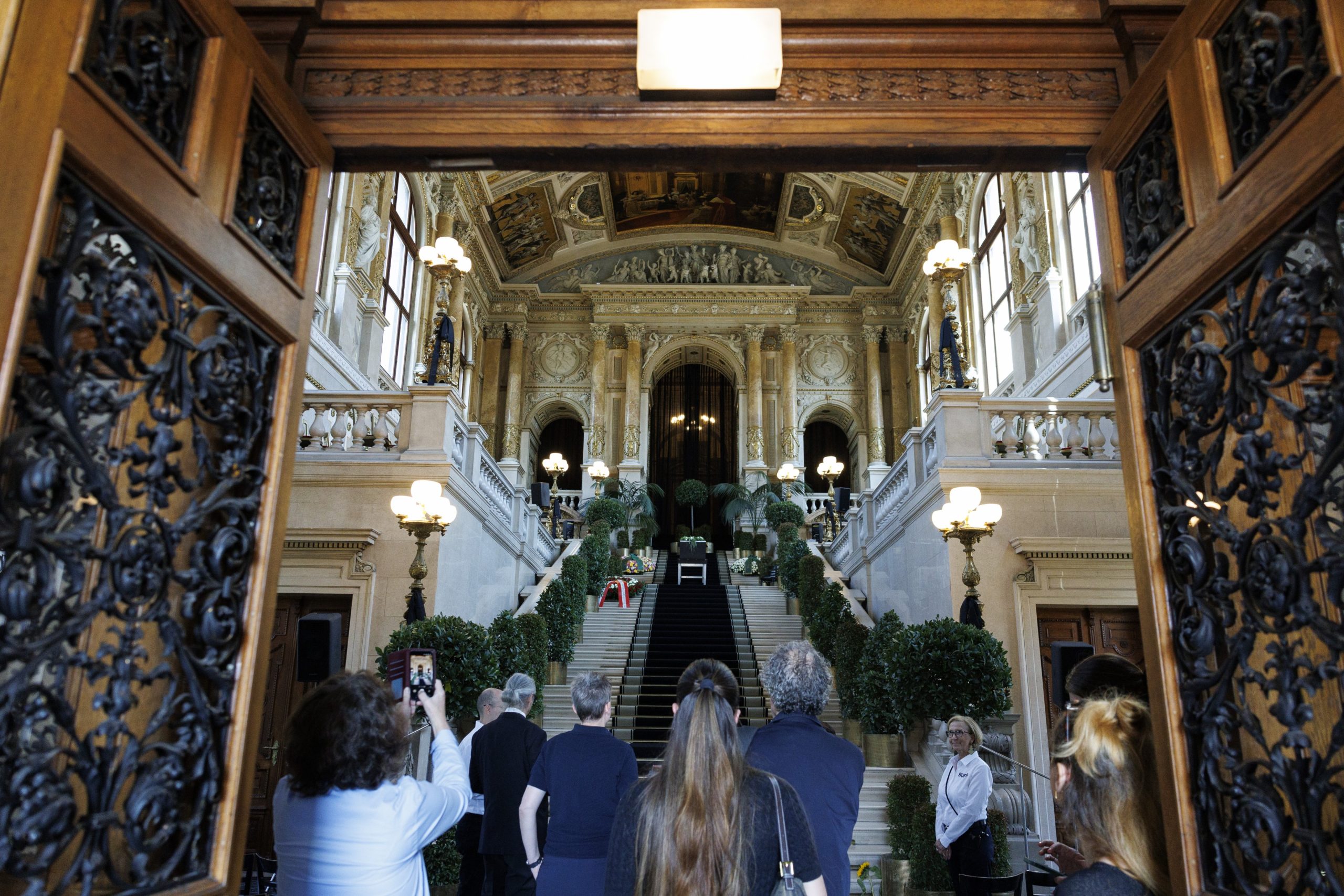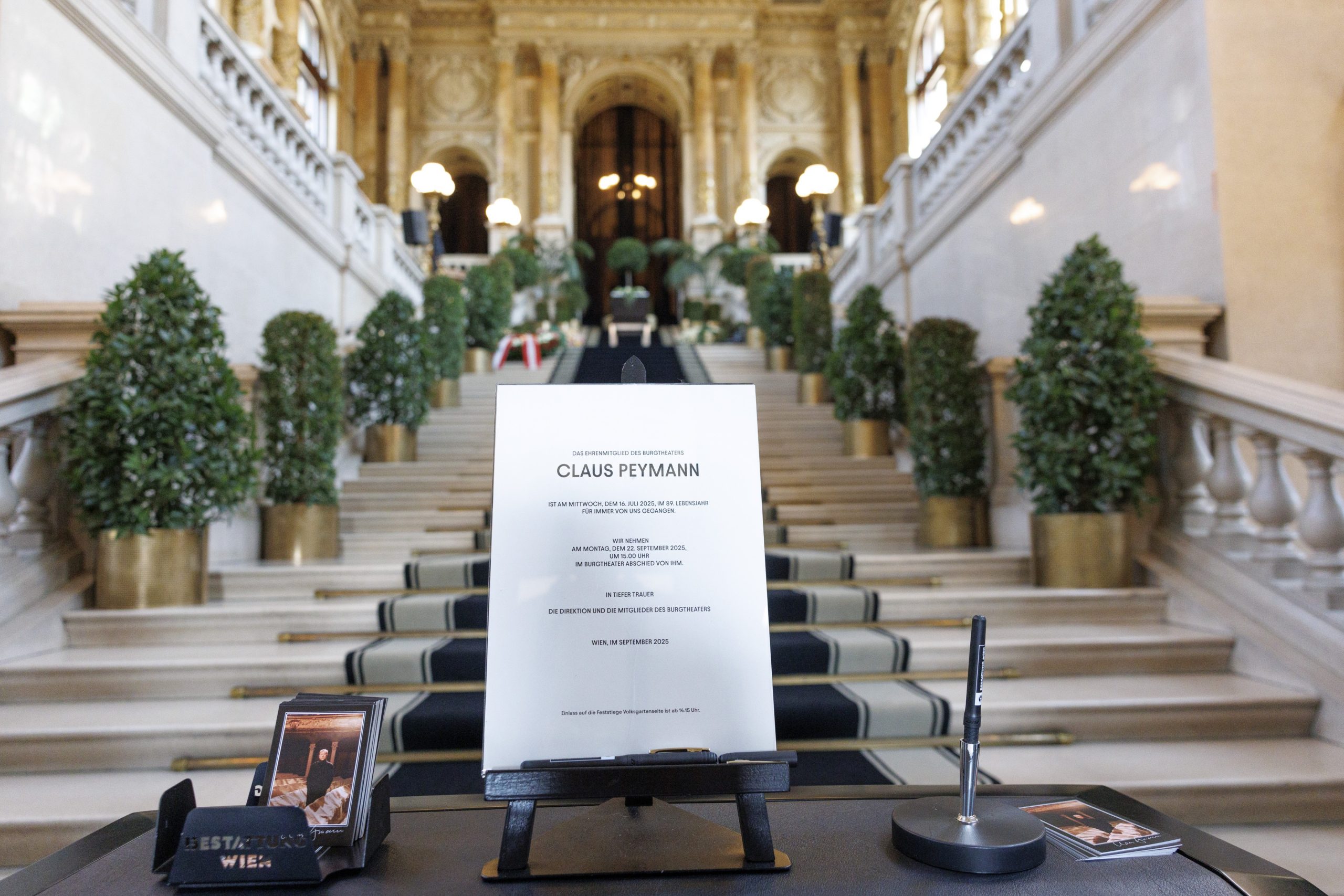Vienna bid farewell to former Burgtheater director Claus Peymann

The applause was given twice: when the former Burgtheater director Claus Peymann, who passed away on July 16 at the age of 88, was carried over the ceremonial staircase after the memorial service and left the theater, which he led from 1986 to 1999, for the last time, and at the end of his final round around the house.
This unique ritual in the theater world for honorary members of the Burgtheater, the escort by friends, colleagues, and companions around the deceased's place of work, was accompanied by a brass ensemble from the director's terrace. Because this is situated above the stage entrance, it is prominently written there: "TO THE STAGE". But from there, he now took his leave.
"The Heart to Vienna, the Rest to Berlin"
"The key question will be: Where will I be buried? Will Vienna prevail with an honorary grave, or will I go to the Dorotheenstädtischer Cemetery, where Brecht lies, Helene Weigel, Heiner Müller, Minetti...?" the theater maker joked in an APA interview back in 2016. "Sometimes I dream of doing it like the old kings: the heart to Vienna, the rest to the Dorotheenstädtischer Cemetery..." The Dorotheenstädtischer Cemetery in Berlin won out. There, Peymann's burial, who led the Berliner Ensemble after the Burgtheater, will take place on Friday. However, it became clear more than once during a touching memorial service, attended by Vienna's mayor but not Austria's culture minister, that he had already lost his heart to Vienna on his "royal stage".
"You are the director who will one day carry me around the Burgtheater," Peymann prophesied to him at their first personal meeting, recounted the current Burgtheater director Stefan Bachmann, who also recalled in his speech when he first heard the name Claus Peymann - as a ten-year-old student in Zurich: "The name sounded sharp and memorable." Bachmann found a good balance between admiration ("He was both king and jester.") and distancing from one of the last tyrannosaurs, doomed to extinction, and the "greatest, perhaps last theater king," who naturally had to be overthrown by Bachmann's generation.
Vienna Bids Farewell to Claus Peymann
Dramaturg Hermann Beil, a half-century collaborator of Peymann's for the common cause in ideal detachment ("no camaraderie, but trust!"), highlighted the surprising development of the native of Bremen, who had previously led theaters in Stuttgart and Bochum: "It became the epitome of the world comedy Austria!" Peymann proved, "that in theater everything, truly everything is possible": "He showed us that theater is freedom."
Maria Happel revealed that Peymann did not resist the honorary membership, "because you wished for this farewell here," the author Christoph Ransmayr began his memories, which also included long joint hikes through the Totes Gebirge or the Höllengebirge, with a "So, Mr. Director: Final applause!", and ended with scattering theater snow confetti over Peymann's coffin.
"When I Once Die, Die, Die, The Fiaker Must Carry Me."
Martin Schwab read catchy Peymann quotes, Peymann's partner Jutta Ferbers read the "Evening Song" by Thomas Brasch, and Branko Samarovski sang, accompanied by accordionist Otto Lechner, a Viennese song for the farewell: "When I once die! Always cheerful, When I once die, die, die, the Fiaker must carry me. And while doing so, zithers play." It turned out to be a silver-gray car from the municipal funeral service and not a Fiaker. And everyone who knew him probably thought: Peymann would not have compromised! Not in his last production! The final applause was nevertheless heartfelt. One could also say: wistful.
(APA/Red)
This article has been automatically translated, read the original article here.
Du hast einen Hinweis für uns? Oder einen Insider-Tipp, was bei dir in der Gegend gerade passiert? Dann melde dich bei uns, damit wir darüber berichten können.
Wir gehen allen Hinweisen nach, die wir erhalten. Und damit wir schon einen Vorgeschmack und einen guten Überblick bekommen, freuen wir uns über Fotos, Videos oder Texte. Einfach das Formular unten ausfüllen und schon landet dein Tipp bei uns in der Redaktion.
Alternativ kannst du uns direkt über WhatsApp kontaktieren: Zum WhatsApp Chat
Herzlichen Dank für deine Zusendung.







